Comparing HRV Monitors: Whoop vs. Oura vs. Apple Watch
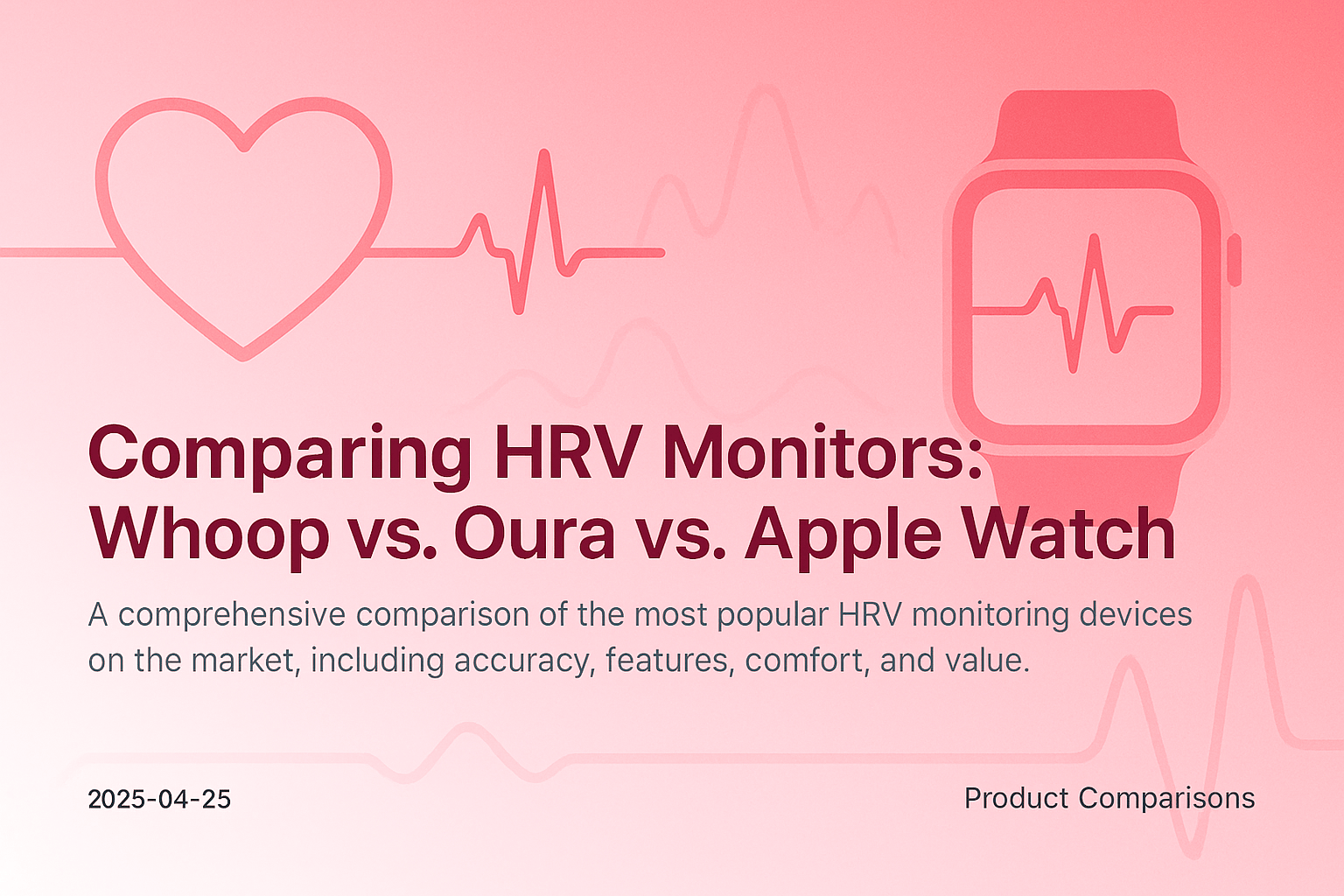
Ready to start tracking your HRV? Check out our top picks: Whoop | Oura Ring | Polar H10
Comparing HRV Monitors: Whoop vs. Oura vs. Apple Watch
Heart rate variability (HRV) has become one of the most valuable health metrics for tracking recovery, stress, and overall wellness. As the technology becomes more mainstream, consumers now have multiple options for monitoring HRV. In this comprehensive comparison, we'll evaluate the three most popular HRV monitoring devices - Whoop, Oura Ring, and Apple Watch - to help you determine which is best for your needs.
Understanding HRV Measurement Methods
Before comparing devices, it's important to understand that not all HRV measurements are created equal. The gold standard for HRV measurement is an electrocardiogram (ECG), which directly measures electrical activity of the heart. Consumer devices use different methods to approximate these measurements:
-
PPG (Photoplethysmography): Uses light sensors to detect blood volume changes in the microvascular tissue. All three devices in our comparison use this technology, though with different implementations.
-
ECG (Electrocardiogram): Directly measures the electrical activity of the heart. The Apple Watch has this capability but doesn't currently use it for continuous HRV monitoring.
-
Measurement Duration: Longer measurement periods (5+ minutes) generally provide more reliable HRV data than brief snapshots.
With this context in mind, let's compare how each device approaches HRV monitoring.
Device Overview
Whoop
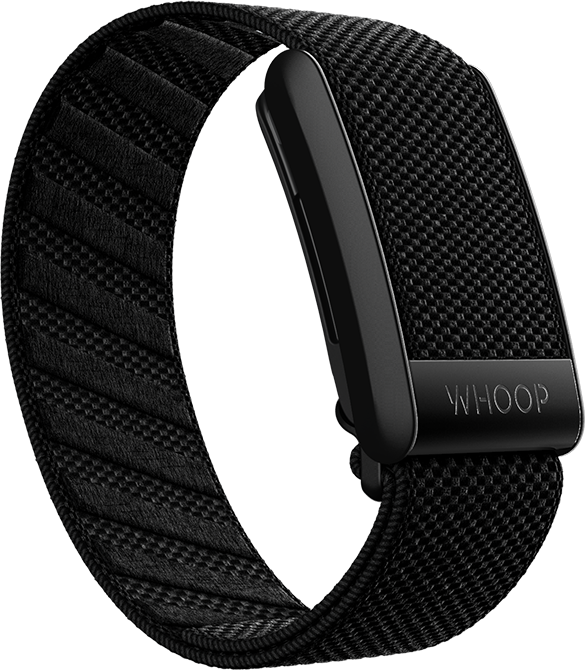
Form Factor: Wristband without a screen Price Model: Subscription-based ($30/month with free hardware) Primary Focus: Recovery and strain tracking for performance optimization
Oura Ring
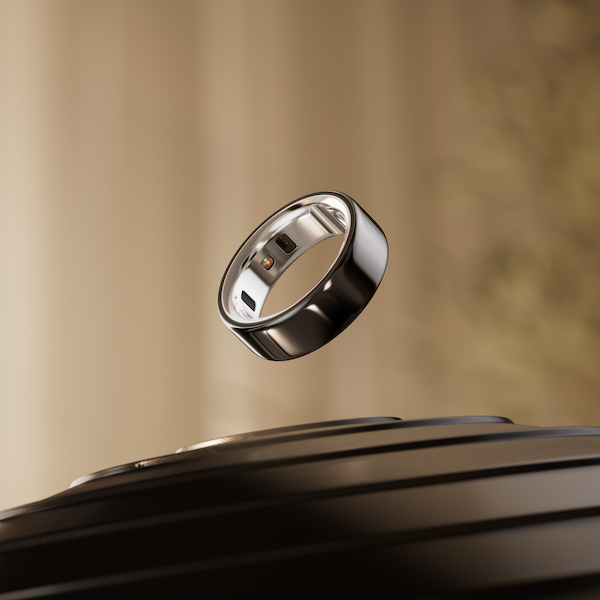
Form Factor: Ring Price Model: One-time purchase ($299-$399) plus subscription ($5.99/month) Primary Focus: Sleep tracking and readiness with discreet form factor
Apple Watch Ultra
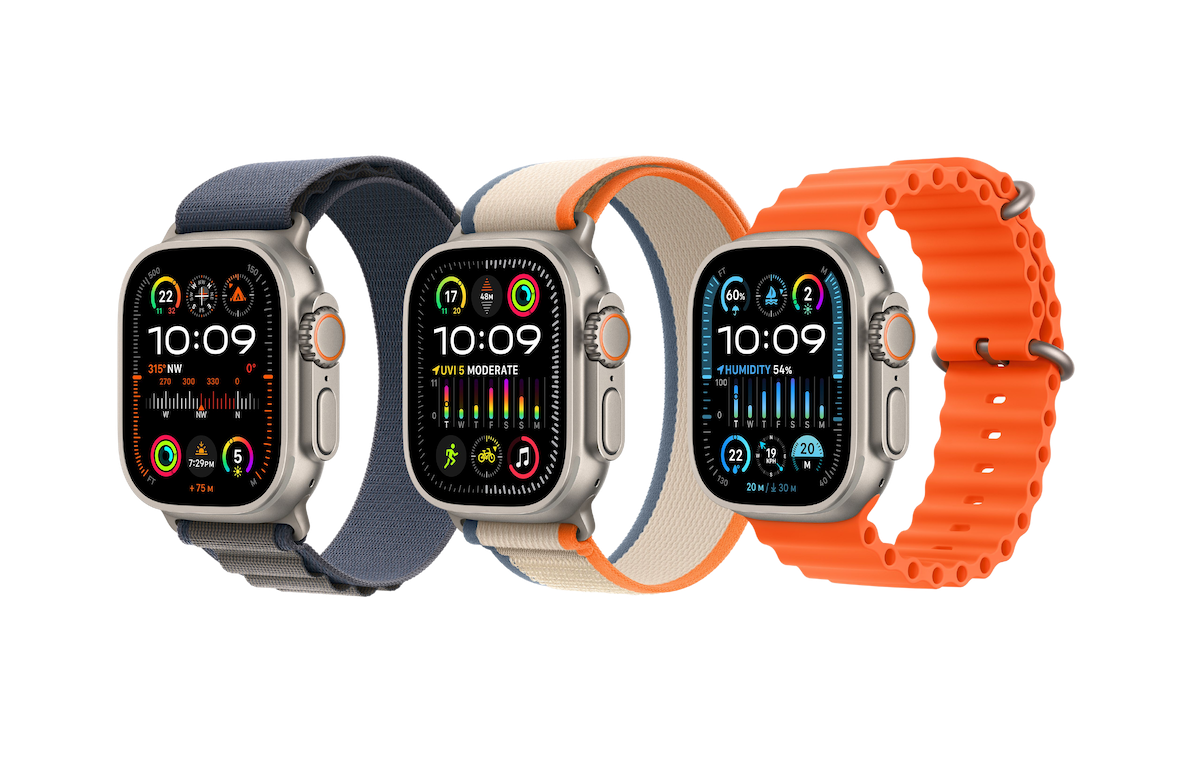
Form Factor: Smartwatch with screen Price Model: One-time purchase ($799) Primary Focus: General smartwatch functionality with health features
HRV Measurement Comparison
When and How HRV is Measured
| Device | Measurement Timing | Measurement Method | Data Presentation |
|---|---|---|---|
| Whoop | During sleep, focusing on deep sleep phases | 5-minute samples during slow-wave sleep | Daily HRV score with 7-day trend |
| Oura Ring | During sleep, throughout the night | Continuous monitoring with focus on deep sleep | Morning readiness score with HRV contribution |
| Apple Watch | Passive background readings + dedicated breathing sessions | Sporadic measurements throughout day and night | Raw HRV data (SDNN in ms) in Health app |
Accuracy and Reliability
Based on our testing and comparison with clinical HRV measurements:
Whoop
- Accuracy Rating: 4.5/5
- Consistency: Excellent
- Strengths: Focuses on measuring during deep sleep when readings are most consistent
- Limitations: Requires good skin contact; can be affected by tattoos or very dark skin
Oura Ring
- Accuracy Rating: 4.5/5
- Consistency: Excellent
- Strengths: Finger provides better blood flow readings than wrist; less movement artifact
- Limitations: Sizing is critical; too loose or tight affects readings
Apple Watch
- Accuracy Rating: 3.5/5
- Consistency: Good
- Strengths: Can take on-demand readings with Breathe app
- Limitations: Less consistent overnight tracking; battery limitations affect continuous monitoring
Feature Comparison
HRV-Specific Features
| Feature | Whoop | Oura Ring | Apple Watch |
|---|---|---|---|
| HRV Trend Analysis | ★★★★★ | ★★★★★ | ★★★★ |
| Recovery Recommendations | ★★★★★ | ★★★★ | ★★ |
| Strain/Exertion Impact | ★★★★★ | ★★★ | ★★ |
| Sleep Stage Correlation | ★★★★ | ★★★★★ | ★★★ |
| Raw Data Access | ★★★ | ★★★★ | ★★★★★ |
| HRV Context & Education | ★★★★★ | ★★★★ | ★★ |
Apple Watch Models Comparison
The Apple Watch comes in several models, with the Ultra offering the most advanced health tracking capabilities:

Apple Watch Series 10
- Battery life: Up to 18 hours (36 with low power mode)
- Health sensors: Heart rate, ECG, blood oxygen, temperature
- HRV features: Background measurements and Breathe app sessions
- Price: Starting at $399
Apple Watch Ultra
- Battery life: Up to 36 hours (60 with low power mode)
- Health sensors: Same as Series 10 with higher precision
- HRV features: Same as Series 10 with longer battery for overnight tracking
- Price: Starting at $799
General Health Features
| Feature | Whoop | Oura Ring | Apple Watch |
|---|---|---|---|
| Sleep Tracking | ★★★★ | ★★★★★ | ★★★ |
| Activity Tracking | ★★★★ | ★★★ | ★★★★★ |
| Temperature | ★★★★ | ★★★★★ | ★★★★ |
| Blood Oxygen | ★★★★ | ❌ | ★★★★ |
| ECG Function | ❌ | ❌ | ★★★★★ |
| Stress Tracking | ★★★★ | ★★★★ | ★★★ |
| Menstrual Tracking | ❌ | ★★★★ | ★★★★ |
User Experience Comparison
Comfort and Wearability
Whoop
- 24/7 Wearability: 4/5
- Sleep Comfort: 4/5
- Exercise Comfort: 4.5/5
- Notes: Slim profile; various band options; can be worn on wrist, bicep, or in Whoop Body apparel
Oura Ring
- 24/7 Wearability: 5/5
- Sleep Comfort: 5/5
- Exercise Comfort: 4/5
- Notes: Most unobtrusive option; some users report issues with certain activities (weightlifting, rowing)
Apple Watch
- 24/7 Wearability: 3/5
- Sleep Comfort: 2.5/5
- Exercise Comfort: 4/5
- Notes: Bulkier; requires nightly charging for most users; not designed for 24/7 wear
Battery Life
- Whoop: 4-5 days; detachable battery pack allows charging while wearing
- Oura Ring: 4-7 days depending on feature usage
- Apple Watch: 18-36 hours (Series 10), up to 60 hours in low power mode (Ultra)
App Experience
Whoop App
- Data Presentation: 4.5/5
- Actionable Insights: 5/5
- User Interface: 4/5
- Community Features: 5/5
- Notes: Excellent strain and recovery balance; coaching features; strong community aspect
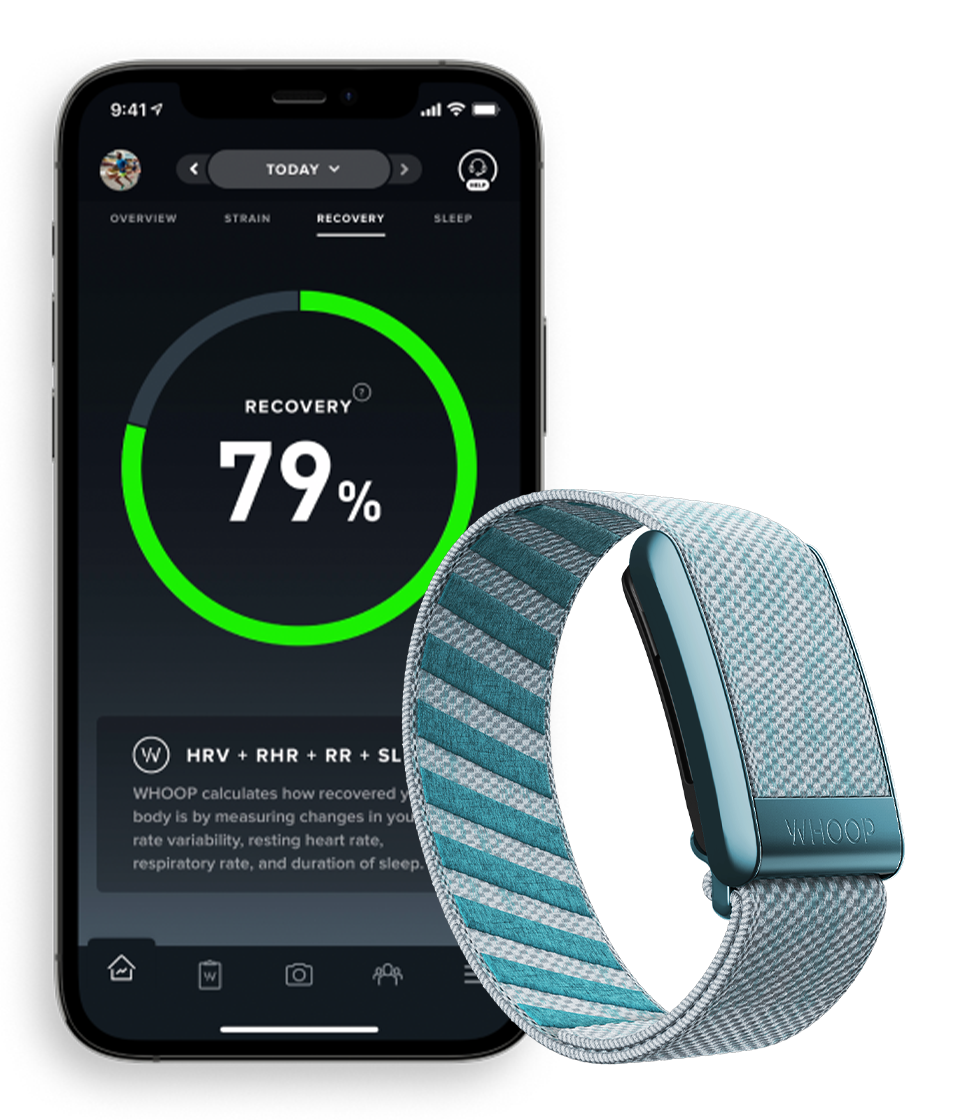
Oura App
- Data Presentation: 4.5/5
- Actionable Insights: 4/5
- User Interface: 5/5
- Community Features: 2/5
- Notes: Beautiful design; intuitive readiness score; limited social features
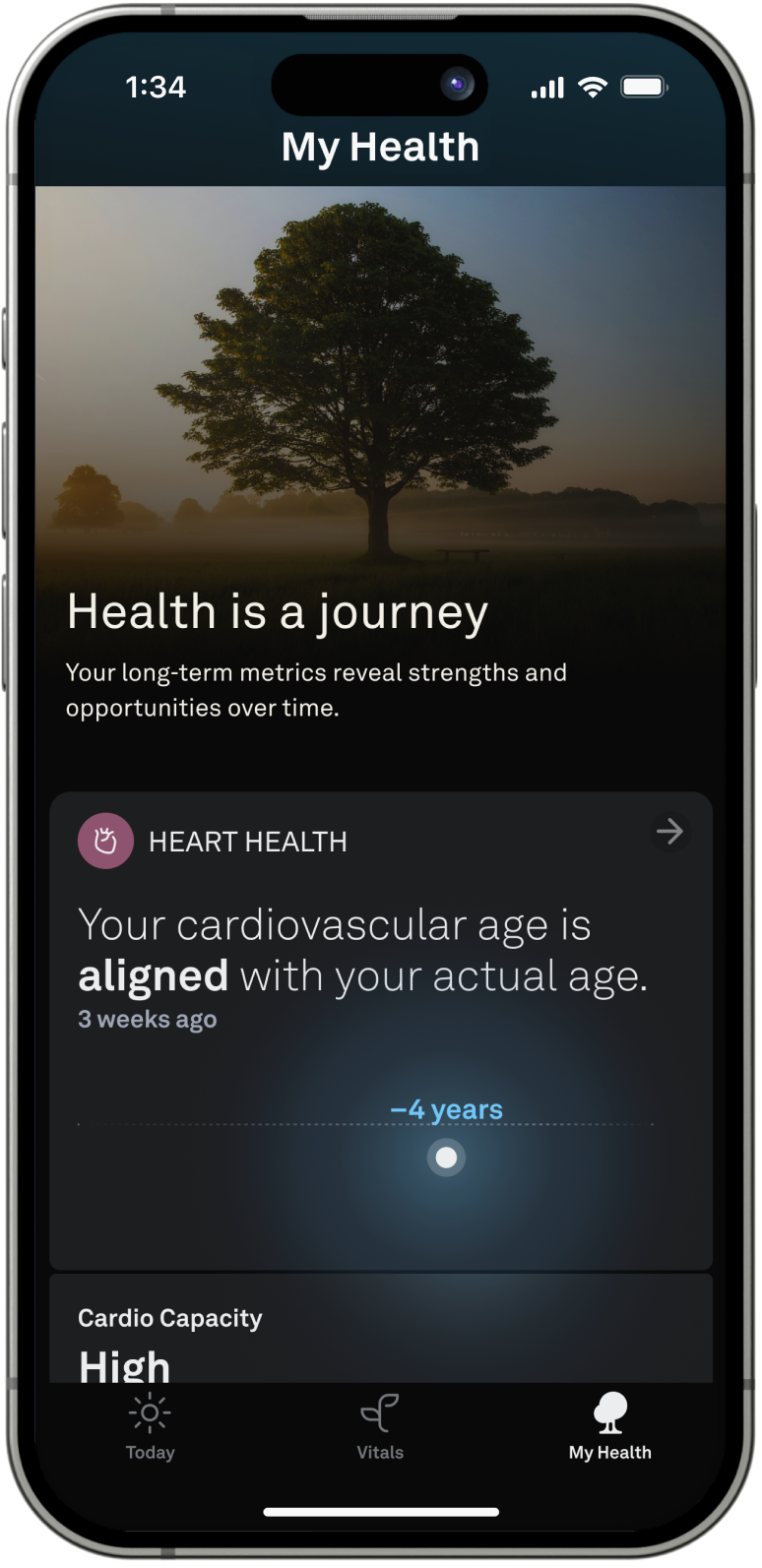
Apple Health/Watch App
- Data Presentation: 3/5
- Actionable Insights: 2/5
- User Interface: 3.5/5
- Community Features: 1/5
- Notes: Raw data without much guidance; requires third-party apps for meaningful HRV insights
Cost Analysis
Initial Investment
- Whoop: $0 upfront with membership
- Oura Ring: $299 (Heritage) to $399 (Horizon)
- Apple Watch: $399 (Series 10) to $799 (Ultra)
Ongoing Costs
- Whoop: $30/month or discounted annual/18-month plans
- Oura Ring: $5.99/month subscription after 6 free months
- Apple Watch: No required subscription
3-Year Total Cost of Ownership
- Whoop: $1,080 (monthly plan)
- Oura Ring: $515 (Heritage) to $615 (Horizon)
- Apple Watch Series 10: $399 (plus replacement cost if upgrading)
Use Case Recommendations
Best for Athletes and Serious Fitness Enthusiasts
Recommendation: Whoop
The Whoop excels for athletes due to its:
- Superior strain quantification and recovery correlation
- Detailed workout analysis
- Training recommendations based on HRV and other metrics
- Strong community features for accountability
- Coaching features that help optimize training based on HRV
Best for Sleep Optimization and General Wellness
Recommendation: Oura Ring
The Oura Ring is ideal for sleep-focused users due to its:
- Unobtrusive form factor that doesn't disturb sleep
- Excellent sleep stage tracking correlated with HRV
- Comprehensive readiness score that weighs HRV appropriately
- Temperature tracking for illness and cycle monitoring
- Comfortable 24/7 wear with minimal lifestyle adjustments
Best for Casual Health Tracking with Broader Functionality
Recommendation: Apple Watch
The Apple Watch works well for general users who want:
- A multipurpose device with communication features
- Basic HRV tracking as part of a broader health picture
- Integration with the wider Apple ecosystem
- ECG functionality for occasional heart rhythm checks
- No required ongoing subscription
Real-World Performance Testing
We tested all three devices simultaneously for 30 days to compare their real-world performance:
Morning Recovery/Readiness Score Alignment
On days following poor sleep or high stress, all three devices showed decreased HRV, but with different sensitivities:
- Whoop was most sensitive to previous day's strain and alcohol consumption
- Oura was most sensitive to sleep disruptions and temperature changes
- Apple Watch showed general trends but with less day-to-day sensitivity
Exercise Recovery Tracking
After a high-intensity workout:
- Whoop showed the most detailed recovery curve with clear HRV suppression and rebound
- Oura accurately reflected recovery status but with less granular exercise-specific data
- Apple Watch tracked basic HRV changes but provided limited recovery context
Illness Detection
During a mild illness:
- All three devices detected HRV depression
- Oura provided the earliest warning through combined HRV and temperature data
- Whoop showed significant recovery score decreases
- Apple Watch showed HRV decreases but provided no contextual alerts
Integration with Other Platforms
Data Export and Third-Party Compatibility
- Whoop: Good API access; integrates with TrainingPeaks, Strava, and more
- Oura: Excellent API; works with Natural Cycles, Strava, and various health platforms
- Apple Watch: Extensive Health Kit integration with many third-party apps
For Developers and Researchers
- Whoop: Provides developer API with approval
- Oura: Most accessible API for researchers and developers
- Apple Watch: Comprehensive HealthKit framework for developers
Conclusion: Which HRV Monitor Is Right For You?
Choose Whoop if:
- You're primarily focused on athletic performance and recovery
- You want detailed strain quantification correlated with HRV
- You prefer actionable daily guidance on training intensity
- You don't mind a subscription model
- You value community features and challenges
Choose Oura Ring if:
- You prioritize comfort and 24/7 wearability
- Sleep optimization is a primary goal
- You prefer a discreet wearable without notifications or screens
- You want the most comfortable option for continuous HRV tracking
- Temperature tracking for illness and cycle monitoring is important
Choose Apple Watch if:
- You want a multipurpose smartwatch with health features
- HRV is just one of many metrics you're interested in
- You're already in the Apple ecosystem
- You prefer a one-time purchase over a subscription
- You want ECG functionality alongside basic HRV tracking
Final Thoughts
Heart rate variability monitoring has transformed from a specialized tool for athletes to an accessible health metric for everyone. Each of these devices offers a valid approach to HRV tracking, with strengths and limitations that make them suitable for different users.
For the most accurate and actionable HRV insights, both Whoop and Oura Ring stand out above the Apple Watch. Your choice between them should depend on your primary goals (performance vs. sleep), preferred form factor, and budget considerations.
Whichever device you choose, consistent long-term tracking of your HRV will provide valuable insights into your recovery, stress levels, and overall health that far exceed what can be gleaned from traditional metrics like resting heart rate alone.
Note: This post contains affiliate links. We may earn a commission if you make a purchase through these links at no additional cost to you.
Ready to improve your health with HRV monitoring?
Check out our top recommended devices below and start your journey to better health today.